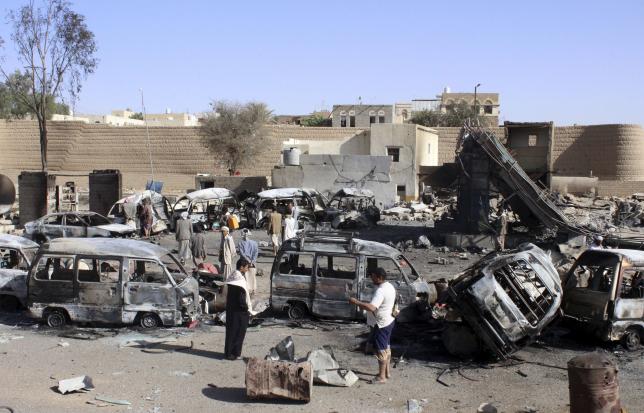
The Houthi rebels on Sunday accepted a five-day humanitarian ceasefire in Yemen, as proposed by Saudi Arabia.
"We announce our acceptance of the humanitarian ceasefire that will begin on Tuesday," an army spokesperson allied with the Houthi forces, Colonel Sharaf Luqman, said on Sunday.
He, however, stressed that the military would relalitate if there was any violation of the ceasefire by Al Qaeda or others. The ceasefire will come into effect at 11pm (2000 GMT) on Tuesday during which humanitarian aid to the civilians will be brought in.
In a bid to restore the government of President Abd-Rabbu Mansour Hadi, the Saudi Arabia-led coalition airstrikes, backed by the United States, have been targeting the Houthis and army units loyal to former president Ali Abdullah Saleh since March.
The acceptance of the truce was announced by the Houthis hours after a Saudi-led coalition carried out air raids in the Yemeni capital of Sanaa in which former president Ali Abdullah Saleh's house, was also targeted, Reuters reported citing witnesses and members of ex-leader's political party.
On Friday, Saudi Arabia had indicated that it was going to launch a major offensive in Saada - a Houthi stronghold, where it had dropped leaflets asking civilians to flee the area. The Saudi-led coalition hit Yemen with 130 air strikes on Saturday.
A senior UN official told Reuters that on Saturday the Suadi coalition forces carried out 130 airstrikes in Saada, some of which violated international law.
"The indiscriminate bombing of populated areas, with or without prior warning, is in contravention of international humanitarian law," the UN Humanitarian Coordinator for Yemen, Johannes van der Klaauw, said in a statement later in the day.
"Many civilians are effectively trapped in Saada as they are unable to access transport because of the fuel shortage. The targeting of an entire governorate will put countless civilians at risk."








